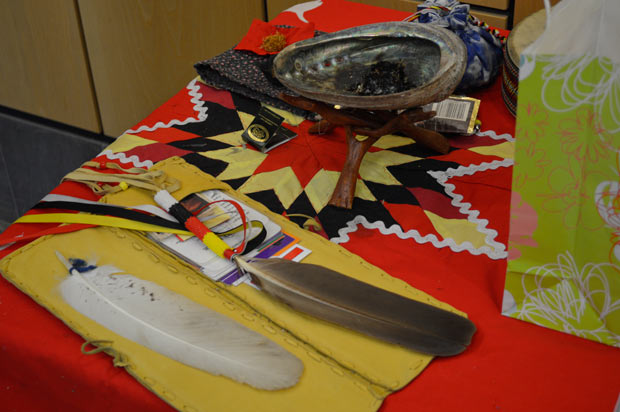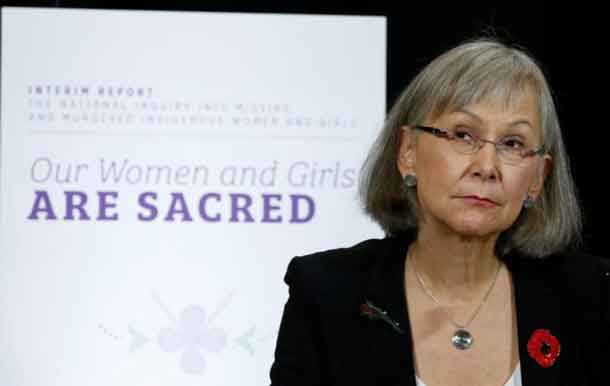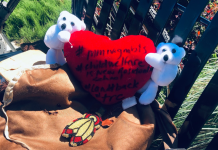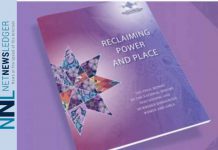

OTTAWA – Marion Buller, the Chief Commissioner of the National Inquiry into Murdered and Missing Indigenous Women and Girls is speaking out to respond to growing criticism of the efforts of the commission.
Here is the text of her open letter:
I first acknowledge the spirits of our Indigenous women, girls and members of the LGBTQ2S communities, and the courage of the survivors of violence. Ms. Belcourt, I am grateful for your continued support and willingness to work with us. I would like to respond to the concerns you raised in your open letter, dated May 14, 2017.
- Communications
The Commissioners and I agree with your criticism of our communications. The National Inquiry has not communicated its work in a clear and timely fashion. In order to correct that weakness, the National Inquiry hired a new Communications Director, Ms. Bernee Bolton, as of April 18, 2017.
Ms. Bolton has worked in communications for over twenty years for non-profit, profit and Indigenous organizations, as well as for the federal government. She is Tlingit First Nations and moved to the west coast after growing up in the Yukon.
While getting oriented to the National Inquiry, Ms. Bolton has reviewed previous communications strategies and activities; analyzed resources; identified areas for improvement in processes and practices and introduced new practices. The intention of the communications team is to update the communications strategy so that the activities of the National Inquiry are clearly understood by the families, survivors and the public. We acknowledge that sharing results often and clearly is the way to increase transparency and build trust.
Ms. Bolton has also been working with the Communications team to develop “mini” communications plans for a number of initiatives including support of the teams carrying out preparations for the community hearings in Whitehorse at the end of this month. She is reviewing the National Inquiry website and social media platform with the goal of updating these outlets. Ms. Bolton is also researching the effective ways of reaching remote communities as well as innovative ways to reach out to the homeless and marginalized.
I want to be clear that we have already taken steps to address the concerns that we share with you. I expect that you will start to notice positive changes to our communications. If not, please let me know.
- Respecting the Spirits of our Relations and Ceremonies
The spirits of our women, girls and families guide our work. We are inspired by the courage of the survivors of violence. No day passes without a reminder that they are reasons why we are all working so hard.
The Commissioners and I are concerned about your comments regarding the inclusion of ceremony in our work. It is true that on occasion our meetings have required more time than originally planned, but as a result, we have been responsive and changed our agendas accordingly. From the start of the National Inquiry, our policy has been to respect the ceremonies and protocols of the people who host us. The feedback that we have received about ceremony has been positive. In the event that we have erred, I have asked our Executive Director to check with Directors and staff about our observance of protocols. Also, I would appreciate further details about the complaints you have received so that we can take appropriate action.
We also know that in many communities ceremony plays an important role in defining and re-defining relationships. We are mindful of the need for ceremony in all aspects of our work.
- Extension
We have been re-evaluating our timelines. Even though we have worked extremely hard, we recognize that the original timelines that were given to us by government are no longer achievable. We have already begun to assess our needs for additional time and budget. We agree that any such request has to be made in a timely way and we intend to do so.
The Commissioners and I know that we need to balance the need for additional time to do our work with the need to provide closure to families, survivors and the general public.
- Leadership
I can understand the concerns you raise regarding leadership. Many of your concerns arise from our past weaknesses in communication.
I do not doubt your comment that many people see the National Inquiry as being too legalistic. That view may be due to the fact that we have not adequately communicated the work that we have already done with advisory groups, Elders and stakeholders. Nor have we properly communicated the work that our Research team has envisioned and commenced. So, I can understand that in the absence of the full and clear picture of all of the hard work we have been doing, we are seen as being too legalistic.
We are required by our Terms of Reference to review the work of the pre-Inquiry process. Even if we were not required to do so, we would review and use that valuable work. The concerns and suggestions that families and survivors voiced at the pre-Inquiry give us direction. Their voices are not lost.
I should point out that the National Inquiry does have a head office, located in Vancouver. The Commissioners and many of our staff are located across the country.
I appreciate your recommendation of a Managing Director or Chairperson. It is a topic for further discussion amongst the Commissioners, National Inquiry staff and you. I look forward to those discussions.
- Trauma-informed process
We are committed to a trauma-informed process. I say that not just because we are required to do so in our Terms of Reference. It is the right way. I am confident that with clear and timely communication, our outreach will be more trauma-informed.
We have had health supports available at advisory meetings. I have asked our Executive Director to inquire of any complaints so that we can immediately remedy the situation.
Some National Inquiry staff and Commissioners have knowledge and experience in trauma-informed service delivery. In order to make sure there is consistency amongst all staff and Commissioners, Inquiry-wide training will begin next month.
- Supports for families and loved ones
In answer to your first question, lawyers can be made available to families and survivors. However, we are taking a different approach to hearing from families and survivors than has been taken in other Inquiries. We want families and survivors to feel comfortable and safe enough to speak directly to us, without the need of having a lawyer present. We want the person to feel as though they are talking with us over tea at their kitchen table. In order to create this comfort and safety, we have changed from the usual courtroom-like process in the following ways: there will be no cross-examination of families and survivors; we do not wish to have a space that looks like a courtroom; if families and survivors do not wish to talk to a Commissioner in public, they may speak to a Commissioner in private; or, family or survivors may speak to a statement–taker, a trained individual who will meet with the participant in private. Any questioning will be done in a gentle way.
Even though we have made these changes, we know that we have to earn trust.
In answer to your second question, our Health team has developed a case management process that includes follow-up and the ability to include traditional healing supports.
- Privy Council Office and Independence
I think that there are several issues that require clarification in this regard. The National Inquiry is a creature of government. The money allocated to the National Inquiry essentially sits in an “envelope” designated for our use. Any expenditure we make must follow specific government rules and procedures. To the best of my knowledge, other Inquiries were in the same situation.
Privy Council Office acts as our banker and financial advisor. Prior to April 1, 2017, Privy Council Office staff approved the expenditures that we sent to them, so long as the expenditures were within the rules. At the same time, they assisted us in preparing all of the required government paperwork so that as of April 1, 2017, I am able to approve most contracts and other expenditures. There are dollar limits on what I can approve for certain types of expenditures. Nonetheless, we are still required to follow government rules and procedures. Currently, once I give my approval for an expenditure, Privy Council Office then arranges for payment. Therefore, in answer to your first question, prior to April 1, 2017, Privy Council Office approved our expenditures and arranged for payment. Since April 1, 2017, I can approve most expenditures and Privy Council arranges for payment. We are using our money wisely and are following the rules and procedures to be financially responsible.
With respect to your second question, whether we have been hampered by Privy Council Office in our ability to support families or our work, the answer is that the people at Privy Council Office have not hampered us. Rather, the time required to follow the rules and procedures has meant that people have had to wait for payment. For example, in the past, people have had to wait for cheques reimbursing them for travel. The staff at Privy Council Office have been responsive to our demands for prompt payment.
In response to your third question, since Privy Council Office acts as our banker and financial advisor, they do charge us a fee for their service. Their fee comes out of our budget.
Your fourth question raises the issue of independence. Briefly, independence with respect to any Inquiry has to do with decision-making. So, in the case of the National inquiry, independence has to do with being able to make findings of fact, decisions, and recommendations free from interference from anyone, all governments included. The financial relationship with Privy Council Office does not affect our independence about findings, decision-making and recommendations.
- Standing
We plan to create a second opportunity for standing applications in the fall. I agree that there is much we can do to simplify the process. We will announce the second date well in advance and we will set out processes in plain language.
I am very glad that you raised the four questions about standing. First, how will the Inquiry include people who are street-involved? In addition to recommendations made in the pre-Inquiry, we have directly received advice that it is very important to protect the privacy and safety of people who are street-involved. Some examples of the recommendations that we have received include having statement-takers available in locations and at times where street-involved people will not be observed by others and allowing them to give statements in affidavits that are as anonymous as possible. We intend to implement these and other recommendations to the greatest extent possible. Additionally, we can accept statements by letter, video and other media. Again, we know that we have to earn trust.
With respect to your second question, we have received similar advice and recommendations about the concerns of people in the sex industries as from street-involved people. We intend to take the same approach.
Your third question about people with matters related to police violence raises the same concerns for privacy and safety. We intend to provide as many options as possible for those people to provide their statements.
Your fourth question is important as well. We do not take the approach that women and girls are defined by how they were classified at birth. People self-identify. We know that many members of the LGBTQ2S community want to speak to us. Their experiences are valuable to our understanding of systemic causes of violence. We have received advice from them about their safety and privacy concerns. We will make sure that members of the LGBTQ2S community are protected and empowered by our process.
We understand that our messaging to marginalized people must be clearer and emphasize safety. Of course, we are open to your advice in these areas.
It must be added that we have been told that privacy and safety for all is important. We have made both our priority.
- Schedule
I can tell you that we will hold our first community hearing in Whitehorse commencing the week of May 29, 2017. As I write this letter to you, there are three National Inquiry teams working in the Yukon to ensure that all involved are properly prepared for our community hearing.
We have received advice from many people and organizations to start hearing from families and survivors in our community hearings. After we finish in Whitehorse, this is our work plan for the summer: we will finalize locations for future community hearings; National Inquiry staff members will visit each location and reach out to families, survivors, Elders and leaders, providing information about the National Inquiry; and, National Inquiry staff will make plans for the required meeting rooms, meals and accommodations. It is neither respectful nor practical and certainly not trauma-informed to just simply arrive in a community and expect to hear from people. We will work with dates that are acceptable to the community because we want to be respectful. I can assure you that we are anxious to finalize our schedules so that we can start hearing from families and survivors starting in September.
Also this summer, members of the National Inquiry Research and Legal teams are planning an expert panel hearing on Indigenous legal traditions and decolonizing approaches to our work. This expert panel hearing will provide us with a framework for our first report in November. We anticipate holding this hearing in August, in Winnipeg.
We will continue with community hearings with families and survivors in the fall and into the early winter. Our Research and Legal teams are planning further public hearings about topics that include, amongst others, human rights perspectives.
Early in 2018, we will start hearing evidence from governments and agencies.
At this time, I cannot provide more specific information. As dates and places for community hearings and panels are confirmed they will be made public.
- Vision
We acknowledge and truly appreciate the important work done by yourselves and many others that led to this National Inquiry. Your work provided a solid foundation for us.
I want to share with you more about our vision for this National Inquiry. The Commissioners, National Inquiry staff and I are deeply committed to making the National Inquiry a success. Our work requires courage, vision and diligence.
The Terms of Reference create the challenge of combining Indigenous cultures and protocols with the western legal system. The Commissioners, National Inquiry staff and I willingly accept this challenge. This type of nation-wide inquiry has never been done before. There is no precise blueprint or example to follow, however we have learned much from the work of the Truth and Reconciliation Commission. Nonetheless, we must proceed carefully and purposefully.
We intend to first find the truth about the systemic causes of violence, by hearing from families and survivors, panels dedicated to specific topics and hearings involving governments and agencies.
At the same time, we want to find out what communities have done to reduce violence against women, girls, and members of the LGBTQ2S communities, and learn why those initiatives are successful. Then, we want to share all of that information so that communities can develop their own answers because we believe that communities know their problems and they know the solutions.
We want to then honour the truth through our reports and recommendations. I expect that this will require taking firm and unpopular positions.
We want to give life to the truth by leaving legacy projects. Just as importantly, we want this National Inquiry to strengthen and support individuals and communities, to help healing and to reduce violence.
In closing, on behalf of the Commissioners, thank you Ms. Belcourt and Signatories for the opportunity to address your concerns.
Sincerely,
Marion Buller
Chief Commissioner / Commissaire en chef
National Inquiry into Missing and Murdered Indigenous Women and Girls Enquête nationale sur les femmes et les filles autochtones disparues et assassinées





